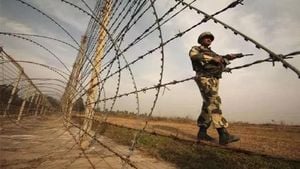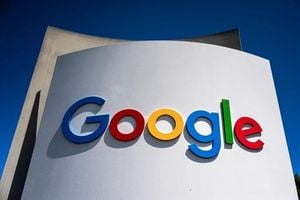South Africa is gearing up for what is anticipated to be one of the most consequential State of the Nation Addresses (SONA) as President Cyril Ramaphosa prepares to deliver his first address under the Government of National Unity (GNU) on February 8, 2025, at 7 PM. The address is set to take place before a joint setting of Parliament at Cape Town City Hall, where the president is expected to outline the government's agenda for the upcoming year.
SONA 2025 holds significant weight, as it marks the first time Ramaphosa will address the nation after the formation of the GNU, which encompasses several political parties, including the African National Congress (ANC), the Democratic Alliance (DA), the Inkatha Freedom Party (IFP), and the Patriotic Alliance (PA). This coalition government is necessary following the ANC's loss of its outright majority for the first time since 1994.
During the recent Cabinet Lekgotla, key policy directives for the year were discussed, setting the stage for Ramaphosa's anticipated address. According to Nomonde Mnukwa, Acting Director-General of Government Communication and Information System (GCIS), the president will reflect on progress made over the past year and propose solutions to pressing national issues such as unemployment, crime, economic recovery, and infrastructure development. "These are matters of great concern for many citizens who experience these challenges daily," Mnukwa stated.
A major focus will be the country's persistent energy crisis. South Africa struggles with fluctuated electricity supply, which has affected economic growth and investor confidence. Ramaphosa is expected to detail how interventions will be implemented through the Energy Action Plan and the Electricity Regulation Amendment Act. Sustainable energy supply measures include:
- Expanding renewable energy through the Independent Power Producer (IPP) program.
- Encouraging private sector participation in electricity generation.
- Enhancing the performance of Eskom power stations through maintenance and refurbishment.
- Modifying energy legislation for attracting new investments.
While the government has made progress, persistent load shedding remains a concern, prompting the president to outline additional measures to stabilize the energy supply.
Another pressing issue is the looming water security crisis, as South Africa battles severe water shortages exacerbated by aging infrastructure, rising demand, climate change, and municipal management struggles. Major developments, including the Lesotho Highlands Water Project Phase II, aim to address these challenges. Despite the efforts, many communities continue to experience service disruptions.
On the economic front, South Africa faces one of the highest unemployment rates globally, especially among the youth, with rates exceeding 50%. Ramaphosa is expected to announce initiatives aimed at stimulating economic growth and job creation, which include:
- Boosting infrastructure development to create jobs and attract investments.
- Supporting small and medium enterprises (SMEs) as drivers of local growth.
- Investing in digital transformation and the green economy.
- Encouraging foreign investment through economic reforms.
Security remains another major concern. With rising violent crime and gender-based violence (GBV), the president is likely to propose measures to increase policing efforts and improve conviction rates through stronger support for the National Prosecuting Authority (NPA). He may also reaffirm commitments to social welfare improvements, including enhanced support for social grant recipients and education for disadvantaged youth.
Adding to the significance of this year, South Africa will host the G20 summit in November 2025, offering the country leverage to position itself as an influential player on the global stage. Mnukwa noted, "The President will call upon all South Africans to get involved in making the summit a success, ensuring its outcomes have life-changing impacts on those less fortunate worldwide."
Despite the potential for progress, tensions within the GNU have arisen, particularly around differing policy approaches among coalition members. The DA recently expressed displeasure over coalition direction, though its leader, John Steenhuisen, emphasized the party's commitment to the alliance, noting, "We are determined to make this coalition work, but we must address our differences."
Public sentiment leading up to SONA reflects frustration and skepticism among citizens, who are eager for concrete solutions to issues like unemployment and economic stagnation. Many are anxiously awaiting plans to eliminate load shedding, strategies to combat corruption, and policies aimed at bolstering crime prevention efforts. Social media discussions have echoed this discontent, showcasing widespread anticipation of Ramaphosa's response.
For Ramaphosa, SONA 2025 will be pivotal, setting the tone for his administration during significant economic pressures and internal coalition conflicts. His responsibility to deliver actionable, detailed plans may affect South Africans’ confidence moving forward. With the nation watching closely, the president's ability to address these challenges effectively could define his presidency.
The State of the Nation Address will be broadcast live on:
- SABC News
- eNCA
- Parliament TV
- Government social media channels
Stay tuned for live updates and analysis as President Ramaphosa speaks to the nation and sets the governance agenda for 2025.



